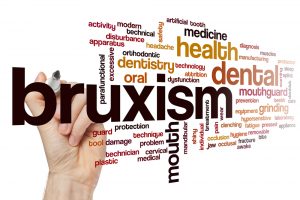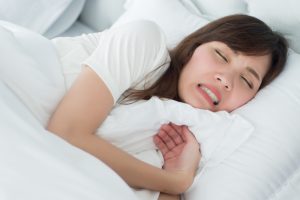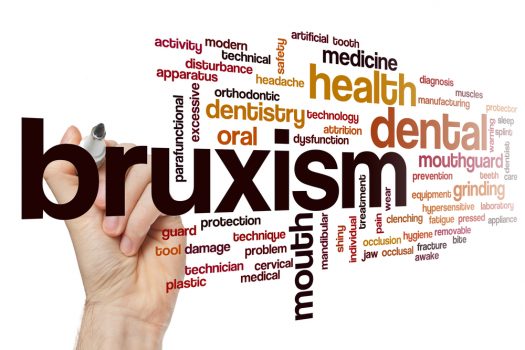Understand The Causes Symptoms And Treatment Of Bruxism
Food is the fundamental requirement of the human beings. The human teeth can break down food by crushing it and prepare it for digestion. Therefore, it is no myth, when our parents remind us to chew our food thoroughly for proper digestion.
Teeth are considered to be the most distinctive and durable feature of the mammal species. But overlooking the dental health may lead to many dental disorders. These disorders may adversely affect our health and the quality of our life.
One such condition is Bruxism which is a dental disorder affecting almost 10% of adults and about 15% of the children. Although Bruxism rates tend to decrease with age, its severity lies in the fact that it is mostly left undetected and only the dentist can recognize the damage done to the teeth.
What Is Bruxism?
Bruxism is the excessive grinding or gnashing of the teeth or jaw clenching. It is an oral parafunctional activity, and the person may unconsciously clench his teeth when he is awake (awake Bruxism) or grind them during his sleep (sleep Bruxism). The people suffering from Bruxism tend to have other sleep disorders such as snoring and sleep apnea.
Bruxism mostly occurs in the early stages of sleep. It can also happen involuntarily during the waking hours. Anxiety and stress are the primary causes of Bruxism. Sleep Bruxism affects both the males and the females, but awake bruxism is more common in the females.

Causes Of Bruxism
Bruxism can be caused by a combination of physical, psychological and genetic factors. Arousals may cause sleep Bruxism during sleep whereas Awake Bruxism may be caused due to emotions such as anxiety, stress or anger. Awake Bruxism may also be the result of a coping mechanism during sleep concentration.
Other causes include:
- Stress or anxiety: Stressful lifestyle, depression, hostility, work-related stress, anger or frustration can contribute to Bruxism.
- Genetic factors: The offsprings of the people who suffer from Sleep Bruxism are more prone to Sleep Bruxism than the children of the people who do not have it. A report suggests that 21-50% of people with Sleep Bruxism have a direct family member having Sleep Bruxism during his childhood.
- Age: Bruxism is quite common in children, but it tends to go away by adulthood due to the decrease in the reflexive action that causes Bruxism.
- Personality: Having an aggressive, competitive or hyperactive personality can cause Bruxism.
- Medications: Certain drugs and psychiatric medications such as tricyclic antidepressants, dopamine agonists, and dopamine antagonists tend to cause Bruxism. The intake of alcohol, cocaine, and caffeine in the form of coffee tea and chocolate also contributes to Bruxism. The use of recreational drugs also increases the risk of Bruxism.
- Other disorders: Bruxism can be related to medical conditions such as Parkinson’s disease, sleep disorders, Attention Deficit/Hyperactivity Disorder, epilepsy and night terrors.
Symptoms Of Bruxism
Bruxism causes the incisors and canines to move against each other, the molars to grind together and the involuntary clenching of the jaw; This may lead to the decay of the enamel and the loss of the biting surface of the teeth. The symptoms of Bruxism include:
- Sleep disruption
- Damage caused due to chewing on the inside of the cheek
- A dull headache, especially around the temples
- Teeth grinding or clenching
- Flattened, fractured, chipped or loose teeth.
- Worn out tooth enamel
- A toothache or Hypersensitivity
- Tired and tight jaw muscles
- Locked Jaw
- Pain in the jaw, neck or face
- Repeated failure of dental restorations
- Grinding or tapping noise during sleep
- Burning sensation on the tongue
- Trismus (restricted opening of the mouth)
- Pain in the Temporomandibular joints
- The clicking of the Temporomandibular joints

Prevention Of Bruxism
Bruxism can be prevented by following these steps legitimately:
- Performing the activities that alleviate stress.
- Avoiding smoking. The consumption of alcohol and other caffeinated beverages should also be avoided.
- Stretching, massaging and exercising regularly to loosen up the muscles.
- Since dehydration is associated with Bruxism, proper intake of water should be ensured.
- Holding a warm washcloth against the cheek in front of the earlobe to relax the jaw muscles.
- Avoiding chewing on pencils or pens.
- Avoiding chewing gums.
Treatment Of Bruxism
Bruxism can be treated in the following ways:
- Using mouth guard and mouth splints: They create a barrier between the upper and the lower teeth to prevent further damage to the teeth and even out the pressure across the jaw.
- Treating stress and anxiety: Undergoing cognitive behavioral therapy can help in reducing stress and anxiety thus ultimately curing Bruxism.
- Using Habit Reversal Techniques: Habit Reversal Techniques may be used by a specially trained therapist to solve the problem of teeth clenching.
- Medication: Medicines such as nonsteroidal anti-inflammatory drugs such as ibuprofen may be recommended to relieve pain and cure the swelling caused by Bruxism.
Dr. Roman Fedorciw, a Rocky Hill Dentist, recommends the scheduling of regular dental appointments so that the dentist can identify and detect the signs of Bruxism when they start to appear.

